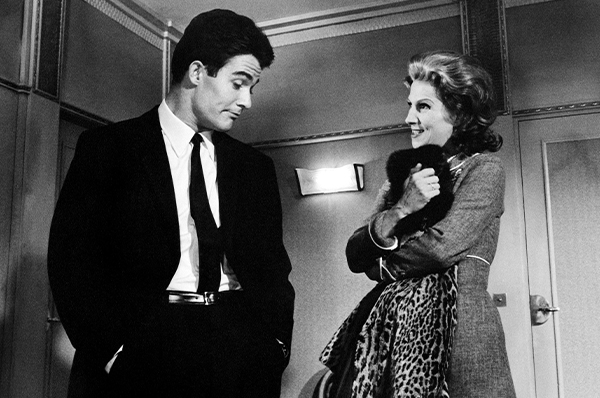Spotlight
Irreconcilable differences
PostED ON 23.10.2022
In the mid-1960s, André Cayatte tried a strange experiment, directing a pair of films showing the perspectives of a husband and wife on the failure of their relationship.

Anatomy of a Marriage, 1964 © DR
“The truth of a relationship is neither one-sided nor objective," said Cayatte, "and that is why I was compelled to make two films. They have opposite dynamics, but one is in no way the negative of the other, and their coexistence alone remains revealing. Moreover, each story is completely autonomous, and I can well imagine being interested only in Françoise's life or in Jean-Marc's. But seeing the two films is almost like seeing three, the third being, in a sense, ‘constructed’ by the audience”
This diptych is an odd narrative exercise, a film-experiment relating the slow destruction of a couple, seen through the arguments of the man or the woman, in whichever order one wishes, the filmmaker always insisted, and no doubt the understanding of the problem is not the same according to whether one begins with ‘Françoise’ or ‘Jean-Marc’.
We find Cayatte the lawyer, who has pleaded many divorce cases and noted with regret that the law always leads to discord and rarely to reconciliation; we also find filmmaker Cayatte, who is fond of rigorous construction, the king of the thesis and antithesis, who pleads two successive cases here with the audience as the jury.
Both films are told in flashback: in voice-over, Françoise (Marie-José Nat) or Jean-Marc (Jacques Charrier), each recall with some bitterness the failure of a love that was born into existence. One night at a surprise party, the incorrigible party boy falls in love with the ingenue, and they both enter the adult world, with responsibilities, a living to make, and soon a child. It's a bit like the useless frat boys who wake up one day with a bourgeois life ahead of them: no more partying and no more feeling carefree.
The interest of the film, apart from the lively chronicle of a couple from the 1960s, which the patina of time makes mildly unfamiliar, is precisely the divergence of views: the film sometimes agrees with the subjective vision of one of the two characters and reality becomes undistinguishable. In short, each one sees his or her own way and we applaud the freedom that Cayatte offers the viewer, never imposing his point of view, leaving the audience entirely free to consider the perspective of one or the other, or simply to conclude that, in the end, these two just weren’t meant for each other. This challenges the stereotype of a preachy filmmaker who is always trying to convince his public one way or another..
A.F.
Screenings:
Anatomy of a Marriage: My Days with Françoise by André Cayatte (1964, 1h38, VFSTA)
Pathé Bellecour Sun 23 at 2:30pm
Anatomy of a Marriage: My Days with Jean-Marc by André Cayatte (1964, 1h40, VFSTA)
Pathé Bellecour Sun 23 à 4:45pm

